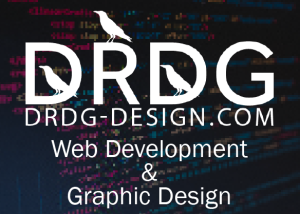The real estate industry has evolved into a more connected and complex risk landscape. From new tenant requirements and sustainability goals to changing development timelines and compliance standards, today’s commercial property owners, managers, builders and construction teams face a broad spectrum of challenges.
At the same time, new opportunities are emerging that can help manage that complexity with more clarity, coordination and confidence. Through it all, strong relationships and thoughtful planning remain at the center of successful outcomes.
This is where advancements in artificial intelligence (AI) are making a meaningful difference—not by replacing human expertise but by supporting teams with tools that simplify complexity. Whether it’s maintaining a high-performing property or breaking ground on a new development, AI has the potential to help real estate and construction professionals stay aligned, informed and ready to act.
Insurance compliance is a great example. Third-party relationships are an essential part of property and project work, from vendors servicing buildings to subcontractors on a job site. Ensuring every partner holds the right coverage without letting important details slip through the cracks has traditionally been tedious and manual. But AI can help make that process much smoother and faster.
With AI-powered tools, teams can automate the collection, review, and tracking of Certificates of Insurance (COIs) and other important insurance verification documents, surface key details and spot gaps before they become liabilities.
By connecting insurance and non-insurance documents to contract requirements and real-time project needs, AI can support a more complete view of risk. It’s a proactive way to prevent oversights, strengthen third-party compliance and keep projects moving forward.
Rising insurance costs are also pushing real estate teams to rethink how they manage coverage and compliance. Deloitte projects that U.S. commercial building insurance costs could rise by nearly 80% on average by 2030. With so much at stake, maintaining accurate, up-to-date COIs isn’t just a best practice; it’s a financial necessity.
 Supporting Property Managers and Development Teams
Supporting Property Managers and Development Teams
Whether managing a commercial property or delivering a new real estate development, AI has the potential to simplify everyday decision-making. For property managers, it could provide real-time insights into operations, tenant behaviors and compliance responsibilities. For developers, it could bring visibility to changing regulations, timelines and risk factors across teams.
In fact, real estate firms are already recognizing AI’s value in these areas. According to Deloitte’s “2025 Commercial Real Estate Outlook,” companies in the early stages of AI adoption are using it primarily for accounting, reporting and internal audits. But those further along in implementation are now prioritizing risk management, financial planning and property operations.
This signals a broader shift toward exploring how AI might improve resilience and long-term performance. Here is a closer look at how this could apply to commercial property management and real estate development:
In commercial property management, AI has the potential to:
- Provide real-time assessments to anticipate maintenance needs and market shifts
- Monitor regulatory changes so teams stay ahead of new rules
- Help manage tenant relationships by surfacing behavioral trends and risk indicators
- Streamline insurance tracking, ensuring coverage is always accurate and up to date
In real estate development, AI could support:
- Smarter planning through trend analysis and forecasting
- Stronger collaboration between general contractors, subcontractors and project stakeholders
- Easier compliance with green building standards and sustainability goals
Better insurance visibility so teams understand what’s covered and where action is needed
AI systems can also help project stakeholders manage risks related to supply chain disruptions and labor availability. By analyzing weather patterns, global shipping trends and local economic indicators, AI tools can help forecast potential shortages or cost spikes, allowing construction teams to adjust procurement strategies or project timelines in advance.
Across all areas, AI could potentially help everyone work from the same playbook. Shared tools keep everyone—from owners to subcontractors—aligned on what’s required and what comes next. Whether it’s surfacing insights, sending reminders or simplifying coordination, AI can bring ease and focus to day-to-day work.
Familiar Tools, Smarter Workflows
Technology works best when it fits naturally into how people work. AI systems designed for real estate and construction do just that — they recognize industry-specific documents, understand how requirements overlap across roles and regions and present information in ways that are easy to act on.
This familiarity with real estate’s language and rhythm helps teams stay connected and productive. With less back-and-forth and fewer surprises, risk management becomes a seamless part of the workflow, not an extra task to worry about. It’s all about creating simpler, smoother experiences that keep projects and properties running well.
By using AI interfaces that feel familiar across teams and industries, construction professionals and property managers alike can work more efficiently. AI can help bridge knowledge gaps, reduce repetitive tasks and support more inclusive collaboration no matter the team’s size or technical experience.
Innovation That Inspires Confidence
AI may not only improve how tasks are done, but it may also open doors to what’s possible. For construction teams and real estate professionals managing insurance, and project, tenant or vendor risks, AI has the potential to serve as a supportive partner that empowers decision-making and builds confidence.
AI functions best as a supportive partner. It can process information, surface relevant insights and help teams make more informed choices.
Whether organizing COIs across a multi-phase project or helping subcontractors stay current on their coverage, AI can help give teams the clarity they need to move forward confidently.
The real estate and construction world is full of exciting possibilities. As needs evolve and expectations grow, the ability to adapt with clarity and collaboration is more important than ever. AI can assist teams in meeting those moments with tools that support thoughtful decision-making, stronger relationships and seamless compliance regardless of the project, property or people involved.
AI is not the solution on its own, but it’s a valuable tool that can help construction and real estate professionals bring their strategies to life with more visibility, intelligence and shared understanding.
As the founder and CEO of myCOI, Kristen Nunery has dedicated more than 15 years to transforming compliance management in the insurance technology space. Actively involved in the Indianapolis business community, she champions the importance of automating Certificate of Insurance tracking to help local businesses minimize risk and maximize efficiency. Kristen’s commitment to client success drives her focus on developing solutions that simplify compliance, allowing companies to thrive in their operations.






























